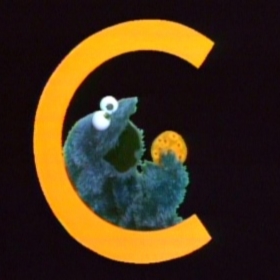Hugsa, spá, pæla, halda, finnast: How to Say “Think”

When five common words all translate to the same word in English, some confusion is only to be expected. Að hugsa, að spá, að pæla, að halda and að finnast all translate as to think, and it can be hard to figure out which to use. But worry not: despite translating to the same word they all have different meanings and uses. In this article we’ll go through each one of them and their true meaning (beyond simple translation).
Að hugsa means to think (in the sense of having thoughts, à la Descartes in the first example below) or to think about (either in the sense of your thoughts being about something, like in the second example, or in the sense of consider, like in the third example).
- Ég hugsa, þess vegna er ég til > I think, therefore I am.
- Jón getur ekki hætt að hugsa um hán > Jón can’t stop thinking about them.
- Guðrún hugsaði um að kaupa sér íbúð > Guðrún thought about buying an apartment.
Að spá and að pæla are interchangeable words, often used like think in the sense of wondering to introduce a topic or an idea (like in the first example below). Að spá literally translates as to foretell, to soothsay, so don’t be surprised if you see it in other contexts. Að pæla is generally only used to mean to think .
In addition to introducing ideas, they can also mean to think about in the sense of considering (like in the second and third examples below), and then act as phrasal verbs: að spá í and að pæla í. Spá í can take either the accusative (acc) or the dative (dat): different native speakers disagree, and each side thinks the other is wrong. The dictionary says accusative, but the dative is objectively much more common. Pæla í takes the dative case.
- Ég var að spá: hvað finnst þér um að vinir þínir haldi að þú sért frá Ástralíu? > I was wondering: what do you think about your friends thinking you’re from Australia?
- Borghildur ætlar að spá í ferlið(acc) og svara svo > Borghildur is going to think about the process and then answer.
- Borghildur ætlar að spá í ferlinu(dat) og svara svo > Borghildur is going to think about the process and then answer.
- Borghildur ætlar að pæla í ferlinu(dat) og svara svo > Borghildur is going to think about the process and then answer.
- Anna er að pæla í að hætta í vinnunni > Anna is thinking about quitting her job.
You have likely noticed that hugsa, spá and pæla can all mean think in the sense of consider. In those cases, the three are interchangeable: any one is equally correct.
- Ég er að hugsa um að fara í háskóla > I’m thinking about going to university.
- Ég er að pæla í að fara í háskóla > I’m thinking about going to university.
- Ég er að spá í að fara í háskóla > I’m thinking about going to university.
Að halda means to think (that), to believe (that). The subordinate clause that follows takes the subjunctive mood (i.e. myndi rather than mun, sé rather than er).
- Hver heldur þú að myndi vinna í slag: Ofurmaðurinn eða Leðurblökumaðurinn? > Who do you believe would win in a fight: Superman or Batman?
- Heldur þú að þetta sé rétt hjá honum? > Do you think that he’s right?
- Sigurður heldur að jörðin sé flöt. Fáviti > Sigurður thinks the earth is flat. Idiot.
Að finnast means to think in the sense of feeling or having an opinion. If you could replace think with feel or opinion (along with necessary rephrasing), then it translates to finnast.
- Mér finnst 2001: A Space Odyssey stórlega ofmetin > I think (feel) 2001: A Space Odyssey is highly overrated.
- Hvað finnst þér um nýja gæjann? > What do you think of the new guy? (what is your opinion of the new guy?)
The subject (mér, þér) is in the dative case because að finnast is an impersonal verb and takes an experiencer subject. You can learn all about that in our article on Impersonal Verbs.
Many sentences would be grammatically correct with either að finnast or að halda, and would even translate into English exactly the same. Unlike spá, pæla and hugsa, however, they are not interchangeable, and carry a significant difference in meaning.
In the examples below, note the identical English translations, but very different intended meaning (shown in parentheses).
- Hver finnst þér vera besti bítillinn? > Who do you think is the best Beatle? (who is your favorite Beatle?).
- Hver heldur þú að sé besti bítillinn? > Who do you think is the best Beatle? (can you answer this trivia question? [the answer is Ringo]).
Summary
Think can mean a lot of different things. The chart below shows some of the different Icelandic translations, depending on what is meant by think. The example sentence below uses a few of the different words we've learned today.
- Ég var að spá: heldurðu að það hjálpi að hugsa? > I was thinking: do you think it helps to think?

Related reading
If you found this interesting, you might also be interested in these articles.




